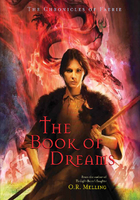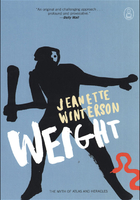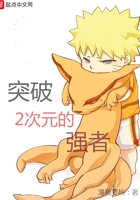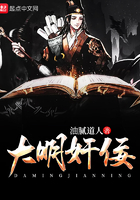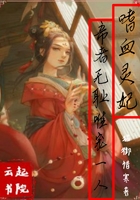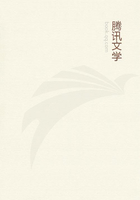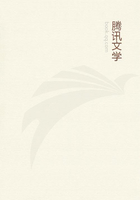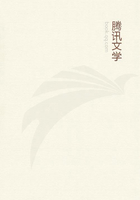As the train rattled out of the cliff tunnel and emerged in a green tree-choked gorge, Iris glanced at her watch. According to the evidence of its hands, the Trieste express was not yet due at the village station.
"It must have stopped when I crashed," she decided. "Sweet luck. It might have lost me my train."
The reminder made her feel profoundly grateful to be actually on her way back to England. During the past twenty-four hours she had experienced more conflicting emotions than in a lifetime of easy circumstance and arrangement. She had known the terrifying helplessness of being friendless, sick, and penniless-with every wire cut. And then, at the worst, her luck had turned, as it always did.
From force of contrast the everyday business of transport was turned into a temporary rapture. Railway travel was no longer an infliction, only to be endured by the aid of such palliatives as reservations, flowers, fruit, chocolates, light literature, and a group of friends to shriek encouragement.
As she sat, jammed in an uncomfortable carriage, in a train which was not too clean, with little prospect of securing a wagon-lit at Trieste, she felt the thrill of a first journey.
The scenery preserved its barbarous character in rugged magnificence. The train threaded its way past piled-up chunks of disrupted landscape, like a Doré steel-engraving of Dante's Inferno. Waterfalls slashed the walls of granite precipices with silver-veining. Sometimes they passed arid patches, where dark pools, fringed with black-feathered rushes, lay in desolate hollows.
Iris gazed at it through the screen of the window-glad of the protective pane of glass. This grandeur was the wreckage of a world shattered by elemental force, and reminded her that she had just been bruised by her first contact with reality.
She still shrank from the memory of first facts, even although the nightmare railway station was the thick of the mountain away. Now that it was slipping farther behind the coils of the rails with every passing minute, she could dare to estimate the narrow margin by which she had escaped disaster.
Amid the crowd at the station there must have been a percentage of dishonest characters, ready to take advantage of the providential combination of an unconscious foreigner-who did not count-and an expensive handbag which promised a rich loot. Yet the little gnome-like porter chanced to be the man on the spot.
"Things always do turn out for me," she thought. "But-it must be appalling for some of the others."
It was the first time she had realised the fate of those unfortunates who had no squares in their palms. If there were a railway accident, she knew that she would be in the un-wrecked middle portion of the train, just as inevitably as certain other passengers were doomed to be in the telescoped coaches.
As she shuddered at the thought, she glanced idly at the woman who sat opposite to her. She was a negative type in every respect-middle-aged, with a huddle of small indefinite features, and vague colouring. Some one drew a face and then rubbed it nearly out again. Her curly hair was faded and her skin was bleached to oatmeal.
She was not sufficiently a caricature to suggest a stage spinster. Even her tweed suit and matching hat were not too dowdy, although lacking any distinctive note.
In ordinary circumstances, Iris would not have spared her a second glance or thought. Today, however, she gazed at her with compassion.
"If she were in a jam, no one would help her out," she thought.
It was discomforting to reflect that the population of the globe must include a percentage of persons without friends, money, or influence; nonentities who would never be missed, and who would sink without leaving a bubble.
To distract her thoughts, Iris tried to look at the scenery again. But the window was now blocked by passengers, who were unable to find seats, so stood in the corridor. For the first time, therefore, she made a deliberate survey of the other occupants of her compartment.
They were six in number-the proper quota-which she had increased to an illegal seven. Her side was occupied by a family party-two large parents and one small daughter of about twelve.
The father had a shaven head, a little waxed moustache, and several chins. His horn-rimmed glasses and comfortable air gave him the appearance of a prosperous citizen. His wife had an oiled straight black fringe, and bushy eyebrows which looked as though they had been corked. The child wore babyish socks, which did not match her adult expression. Her hair had apparently been set, after a permanent wave, for it was still secured with clips.
They all wore new and fashionable suits, which might have been inspired by a shorthand manual. The father wore stripes-the mother, spots-and the daughter, checks. Iris reflected idly that if they were broken up, and reassembled, in the general scramble, they might convey a message to the world in shorthand.
On the evidence, it would be a motto for the home, for they displayed a united spirit, as they shared a newspaper. The mother scanned the fashions; the little girl read the children's page; and from the closely-printed columns Iris guessed that the head of the family studied finance.
She looked away from them to the opposite side of the carriage. Sitting beside the tweed spinster was a fair pretty girl, who appeared to have modelled herself from the photograph of any blonde film actress. There were the same sleek waves of hair, the large blue eyes-with supplemented lashes, and the butterfly brows. Her cheeks were tinted and her lips painted to geranium bows.
In spite of the delicacy of her features, her beauty was lifeless and standardised. She wore a tight white suit, with a high black satin blouse, while her cap, gauntlet-gloves and bag were also black. She sat erect and motionless, holding a rigid pose, as though she were being photographed for a "still."
Although her figure was reduced almost to starvation-point, she encroached on the tweed spinster's corner, in order to leave a respectful gap between herself and the personage who had opposed Iris' entrance.
There was no doubt that this majestic lady belonged to the ruling classes. Her bagged eyes were fierce with pride, and her nose was an arrogant beak. Dressed and semi-veiled in heavy black, her enormous bulk occupied nearly half the seat.
To Iris' astonishment, she was regarding her with a fixed stare of hostility. It made her feel both guilty and self-conscious.
"I know I crashed the carriage," she thought. "But she's got plenty of room. Wish I could explain, for my own satisfaction."
Leaning forward, she spoke impulsively to the personage.
"Do you speak English?"
Apparently the question was an insult, for the lady closed her heavy lids with studied insolence, as though she could not endure a plebeian spectacle.
Iris bit her lip as she glanced at the other passengers. The family party kept their eyes fixed on their paper-the tweed spinster smoothed her skirt, the blonde beauty stared into space. Somehow, Iris received an impression that this well-bred unconsciousness was a tribute of respect to the personage.
"Is she the local equivalent to the sacred black bull?" she wondered angrily. "Can't any one speak until she does? Well, to me, she's nothing but a fat woman with horrible kid gloves."
She tried to hold on to her critical attitude, but in vain. An overpowering atmosphere of authority seemed to filtrate from the towering black figure.
Now that her excitement was wearing off, she began to feel the after-effects of her slight sunstroke. Her head ached and the back of her neck felt as stiff as though it had been reinforced by an iron rod. The symptoms warned her to be careful. With the threat of illness still hanging over her, she knew she should store up every scrap of nervous force, and not waste her reserves in fanciful dislikes.
Her resolution did not save her from increasing discomfort. The carriage seemed not only stuffy, but oppressive with the black widow's personality. Iris felt positive that she was a clotted mass of prejudices-an obstruction in the healthy life-stream of the community. Her type was always a clog on progress.
As her face grew damp, she looked toward the closed windows of the compartment. The corridor-end, where she sat, was too crowded to admit any of the outer air, so she struggled to her feet and caught the other strap.
"Do you mind?" she asked with stressed courtesy, hoping, from her intonation, that the other passengers would grasp the fact that she was asking their permission before letting down the glass.
As she expected, the man of the family party rose and took the strap from her. Instead of finishing the job, however, he glanced respectfully at the personage, as though she were sacrosanct, and then frowned at Iris, shaking his head the while.
Feeling furious at the opposition, Iris returned to her corner.
"I've got to take it," she thought. "Take it on the chin. I'm the outsider here."
It was another novel sensation for the most popular member of the crowd, to be in a minority. Besides having to endure the lack of ventilation, the inability to explain her actions, or express a wish, gave her the stunted sense of being deprived of two faculties-speech and hearing.
Presently the door was opened and a tall man squeezed into the carriage. Although she realised that her feelings had grown super-sensitive, Iris thought she had never seen a more repulsive face. He was pallid as potter's clay, with dead dark eyes, and a black spade beard.
He bowed to the personage and began to talk to her, standing the while. His story was evidently interesting, for Iris noticed that the other passengers, including the child, were all listening with close interest.
As he was speaking, his glasses flashed round the compartment, and finally rested on her. His glance was penetrating, yet impersonal, as though she were a specimen on a microscope-slide. Yet, somehow, she received the impression that she was not a welcome specimen, nor one that he had expected to see.
Stooping so that his lips were on a level with the personage's ear, he asked a low-toned question. She replied in a whisper, so that Iris was reminded of two blowflies buzzing in a bottle.
"Am I imagining things, or do these people really dislike me?" she wondered.
She knew that she was growing obsessed by this impression of a general and secret hostility. It was manifestly absurd, especially as the man with the black spade beard had not seen her before. She had merely inconvenienced some strangers, from whom she was divided by the barrier of language.
Shutting her eyes, she tried to forget the people in the carriage. Yet the presence of the man continued to affect her with discomfort. His white face seemed to break through her closed lids, and float in the air before her.
It was a great relief when the buzzing ceased and she heard him go out of the compartment. Directly he had left, she grew normal again, and was chiefly conscious of a very bad headache. The most important things in life were tea and cigarettes; yet she dared not smoke because of the threat of sickness, while tea seemed a feature of a lost civilisation.
The train was now rushing through a deserted country of rock and pine. The nearest reminder of habitation was an occasional castle of great antiquity, and usually in ruins. As she was gazing out at the fantastic scenery, an official poked his head in at the door and shouted something which sounded like blasphemy.
The other passengers listened in apathy, but Iris began to open her bag, in case tickets or passport were required. As she did so, she was amazed to hear a crisp English voice.
The tweed spinster had risen from her seat and was asking her a question.
"Are you coming to the restaurant-car to get tea?"


